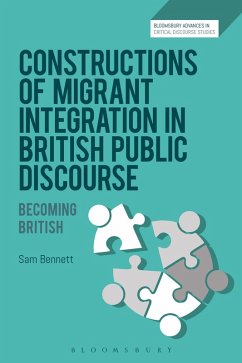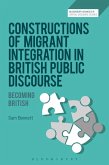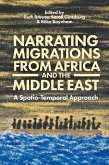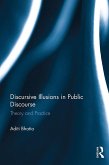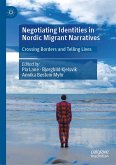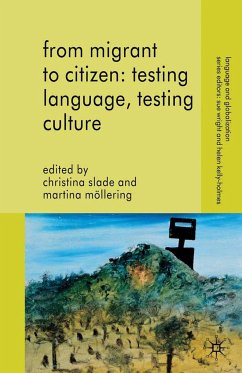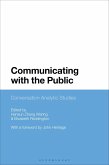This is a study into how the public discourse on migrant integration in the UK changed from 2000-2010. The book shows that the discursive construction of integration in the British public sphere shifted from one of cultural pluralism to one of neo-assimilation, informed by a wider spread of neo-liberalism that necessitates self-sufficiency and discourages state assistance. Situated within the Critical Discourse Studies tradition, the book employs a Discourse Historical approach to the data and includes innovative analysis combining 'top-down' (policy documents and media texts) and 'bottom-up' (focus groups with migrants and new citizens) sites of discourse production. In doing so, it provides a broad and detailed perspective of public discourse on integration in the UK. The book shows that understandings of 'integration' are diachronically and synchronically fluid and as such, the term plays an important role as a 'consensus concept' that different actors can support whilst construing it in different ways. Analysis of the data further reveals that integration is interdiscursively linked to other social fields, such as the economy, terrorism and public spending. The book also argues that integration policy has become directed not just at new migrants, but also long-term British citizens and that this has the potential to have considerable impact on community cohesion.
Bitte wählen Sie Ihr Anliegen aus.
Rechnungen
Retourenschein anfordern
Bestellstatus
Storno

